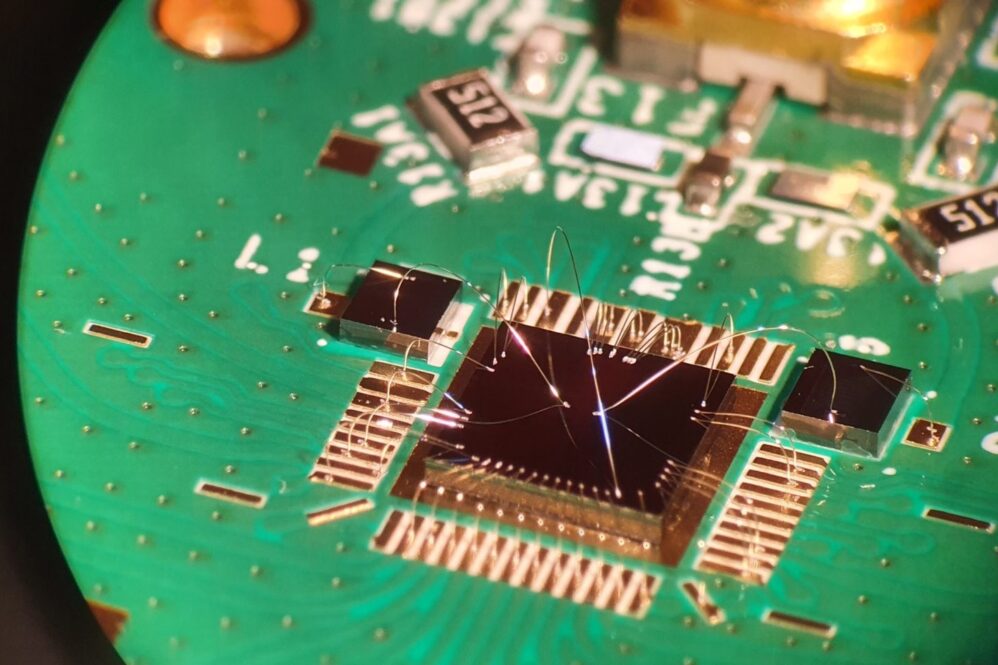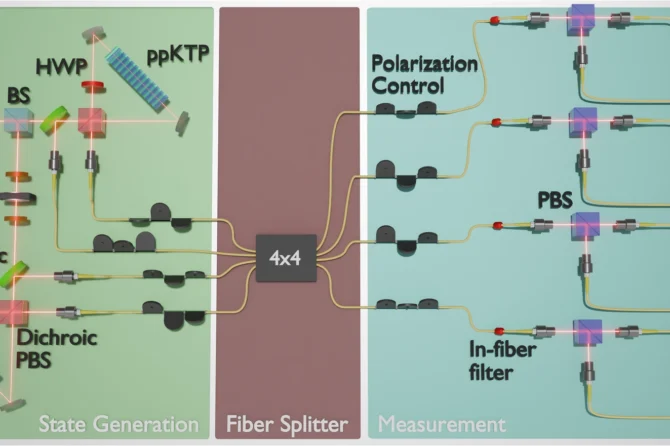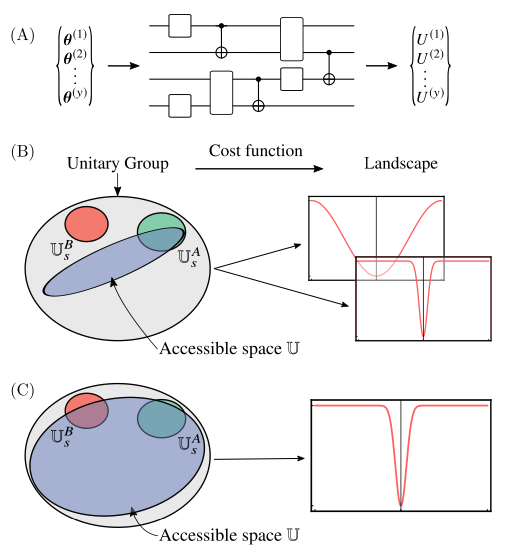QuTech researchers have achieved a significant breakthrough in quantum computing by developing a six-qubit processor using silicon, marking the largest fully interoperable array of silicon-based spin qubits to date. The collaboration between Delft University of Technology and TNO demonstrated high-precision control and low error rates through innovative chip design, automated calibration, and improved initialization and readout methods.
The team, led by Professor Lieven Vandersypen, created the processor by arranging six quantum dots in a linear array, spaced 90 nanometers apart on a silicon chip. Each quantum dot contains a single electron, whose spin direction represents the qubit’s logical state (0 or 1). The researchers controlled and measured these electron spins using a precise combination of microwave radiation, magnetic fields, and electric potentials.
This achievement addresses two critical challenges in quantum computing: developing high-quality qubits and creating an architecture suitable for larger systems. While other technologies, such as superconducting qubits, have demonstrated arrays exceeding 50 qubits, silicon-based quantum devices offer unique advantages due to the existing global silicon engineering infrastructure, potentially facilitating easier transition from research to industrial applications.
The breakthrough is particularly notable because previous silicon quantum devices were limited to three qubits without compromising quality. The QuTech team overcame this limitation while maintaining high performance across multiple key metrics: initialization fidelity, readout fidelity, single-qubit gate fidelity, and two-qubit state fidelity. According to first author Stephan Philips and co-author Dr. Mateusz Madzik, this development represents a crucial stepping stone toward scaling up silicon-based quantum computers, as the fundamental building blocks demonstrated in this research can be expanded to incorporate additional qubits in future iterations.
The research has been published in Nature.
Reference: Philips, S.G.J., Mądzik, M.T., Amitonov, S.V. et al. Universal control of a six-qubit quantum processor in silicon. Nature 609, 919–924 (2022). DOI
The post Full control of a six-qubit quantum processor in silicon appeared first on QuTech.




